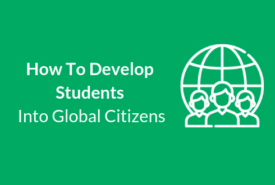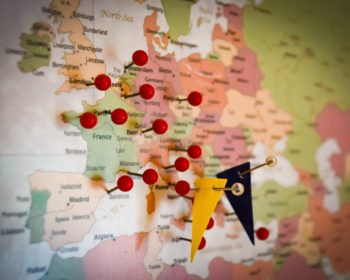
While traveling through Europe with your study abroad students, many travelers have the desire to experience different cultures beyond Western Europe; enter Morocco. Morocco is the perfect destination just a short distance from Europe and an immersive visit can be accomplished in a short weekend, leaving students with small taste of culture that was once unfamiliar to them.
Read on to discover seven convincing reasons to include a trip to Morocco into your study abroad program.
1. Experience Muslim Culture
For many students studying abroad in Europe, a trip to Morocco will be their first encounter with a Muslim culture. As Morocco is an Islamic country, students will learn about the differences between a majority Islamic culture than what they will have experienced in the U.S. or Europe.
In Islam there is an emphasis on modesty and this is reflected in how individuals dress. Men and women often wear djellabas and many Moroccan women wear hijabs. It is not expected as tourists that women cover their hair, but it is advised for women to cover their shoulders and knees out of respect.
2. Discover Traveling Outside Western Countries
In Morocco you can get around by train or bus relatively easily. But, within a city, it’s easiest to get around by taxi. You should always establish the cost of your taxi ride before entering the cab and beginning your ride to avoid a potentially higher rate.
When it comes to determining which cities to visit in Morocco, each city has its own unique atmosphere. Popular cities include Marrakech, Fez, Tangiers, Rabat and, Chefchaouen.
Pro Tip: Tipping is customary in Morocco so it is expected that you leave a few dirham for people who are providing you with a service.
3. Learn Some Arabic
Did you know that there are 250 million native Arabic speakers in the world? Morocco provides the perfect opportunity to learn some basic Arabic phrases, putting forth effort to say thank you and hello in Arabic will be greatly appreciated by locals.
It’s important to note that Arabic is the national language of Morocco, but Moroccan Arabic, aka Darija, is more commonly used. Moroccan Arabic is a unique dialect with French, Spanish and Berber influences.
4. Interact with the Berbers
The Berbers are an ethnic group indigenous to Northwest Africa and have lived in the area for thousands of years with their presence being recorded as early as 3000 B.C.E. When visiting Morocco it is possible to organize visits with Berber families to experience another aspect of Moroccan culture. We recommend organizing a visit and enjoying some traditional mint tea.
5. Try New Foods
Food is one of our favorite parts of traveling and the food in Morocco is reason alone to include a trip for your students. With its mediterranean influences, Moroccan food is a delicious mix of traditional middle eastern spices and fresh local ingredients. When in Morocco you have to try tagine, couscous, and as mentioned before, mint tea.
6. Practice Your Haggling Skills
Haggling is a standard practice in Morocco as many items in shops and markets do not have a listed price. As you and your students will be easily identified foreigners, they’ll likely start with a high price. We recommend shopping around before deciding the price you would like to pay for an item and always negotiate.
7. Visit the Sahara Desert
The Sahara Desert is the world’s largest hot desert and its unique landscape is awe inspiring. If possible, take your students to spend a night or two camping in the desert. The Erg Chebbi and Erg Chigaga are the two main sand dunes travelers frequent. We recommend traveling with an organized group tour to ensure a safe and pleasant experience for your group.
Have we convinced you to consider adding a trip to Morocco to your study abroad program? Contact us to talk about how we can provide logistical and operational support.
International Education
How To Develop Students Into Global Citizens

Ready or not, the future is a globalized one. How are you preparing your students for this shift?
We’ve laid out three actionable steps to assist you in developing your students into global citizens and set them up for future success.

